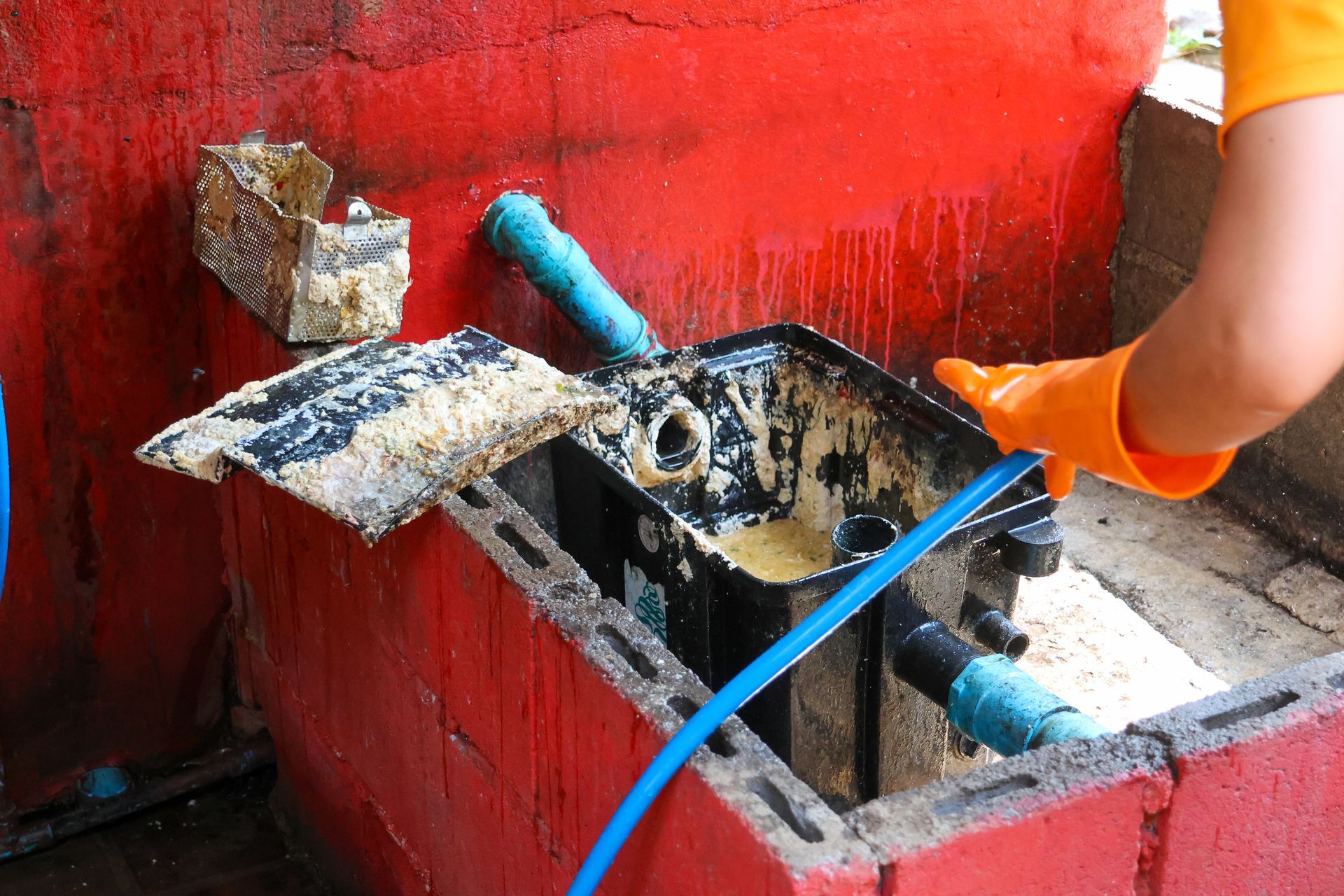How Do You Dispose of Ground Beef and Bacon Grease?
Ground beef and bacon grease is an unavoidable hassle for people cooking at home and commercial kitchen managers alike. There are several ways you can deal with cooking grease responsibly and one severely incorrect way that could damage your plumbing.
How to Dispose of Ground Beef and Bacon Grease
One thing you should never do is dispose of cooking grease in the drain. Grease will stick to the inside of your pipes and create blockages that can destroy your plumbing – or, worse, make its way into the sewer system and cause sewage backups. Sewer lines clogged with FOG can cause expensive problems and lead to extremely hazardous and unpleasant messes.
But if you can’t pour grease from bacon or ground beef down your drain, what should you do with the hot grease left behind after cooking?
Throw It Out
The simplest way to dispose of bacon or ground beef grease is to just throw it out, although you can’t do it immediately because hot grease will melt a plastic trash bag or even plastic kitchen trash receptacles.
Once you’ve finished cooking the bacon or ground beef, pour the grease into a glass, metal or paper container. It’s best not to pour hot grease into Styrofoam containers since they can melt or become misshapen. Many people repurpose glass jars or discarded milk cartons to contain hot grease.
If you cook ground beef or bacon often, keeping glass or metal containers (empty and washed pasta sauce jars, pickle jars, coffee tins, jam jars, etc.) in your kitchen is a good idea. These won’t typically become full after cooking a single meal for you and your family. Glass can be especially useful since you can get a virtually airtight seal, meaning the smell of saved grease won’t emanate and you can add more after cooking subsequent meals. Once the jar is full, you can just throw it out in the trash.
Keeping a large container on hand and continually dumping the grease in there can make disposal less of a hassle and limit the space it takes up in trash.
If you don’t have any sealed containers lying around, you can also use a ceramic bowl or mug as a temporary vessel. Once the grease has cooled and solidified you can scrape it out into the trash and wash the bowl or mug. If you take this approach, just make sure to scrape out as much grease as possible and use a moist paper towel to remove as much residue as possible prior to washing the bowl. It’s important to minimize residual grease that might go down your drain when washing your temporary grease receptacle.
Reuse It
Some people value bacon grease for cooking and will use the solidified and saved grease in addition to or in place of oil for some types of cooking. If you are keeping it for future use, you may want to pour hot grease through a metal strainer and into a glass jar to remove food particles from your stored grease. Seal the container with an airtight lid (repurposed glass jars with tight lids are preferable for the task). Instead of throwing it away, you can keep it in a cupboard, fridge or even freezer for future use.
Saved ground beef and bacon grease can be used instead of cooking fats or coconut oil to add extra flavor to dishes like meat, fish and vegetables.
Stored grease typically lasts one to two months in the cupboard and potentially several months if it’s refrigerated. Cool, dark places are ideal for storage. If it looks gummy or turns food soggy, it shouldn’t be consumed.
Reusing traditional cooking oil can be dicey, as cooking with the same batch numerous times can ruin the flavor or even contaminate your food. As long as you didn’t burn the grease while cooking initially and have thoroughly filtered out lingering food bits, saving ground beef and bacon grease can provide you with an affordable, flavor-enhancing cooking tool for your next meal.
Environmentally Conscious Food Disposal Is Important for Both Homeowners and Business Owners
While the volume of grease you produce at home is significantly smaller than that made by a restaurant or office cafeteria, how you dispose of it is just as important. Whether it’s an ounce or a tub of bacon grease, both have the potential to harm your home’s plumbing and sewer line. Regular disposal of grease down drains can even cause “fatbergs” to develop further along in the sewer, potentially causing problems for your whole neighborhood.
Thankfully, disposing of your cooking grease in a responsible way is relatively easy.
Reap the Benefits of a Reputable and Effective Fryer Oil Recycling and Grease Trap Cleaning Service in Atlanta
At Southern Green Industries, we’ve been helping Georgia restaurants remain in compliance with municipal FOG management and grease trap cleaning requirements since 2007. Our crew puts our customers first, working efficiently with minimal disruption to your operations. In addition to grease trap cleaning, we also offer customized waste oil collection services and pay competitive prices for used fryer oil.
Call (404) 419-6887 today to learn more about our grease trap cleaning and fryer oil recycling services and receive a free quote.
Recent Blog Posts
Contact us Today for a FREE Quote
We are committed to making grease trap cleaning and fryer oil recycling as clean and easy as possible. If you’d like to learn more about our services or get a quote, give us a call at (404) 419-6887.



